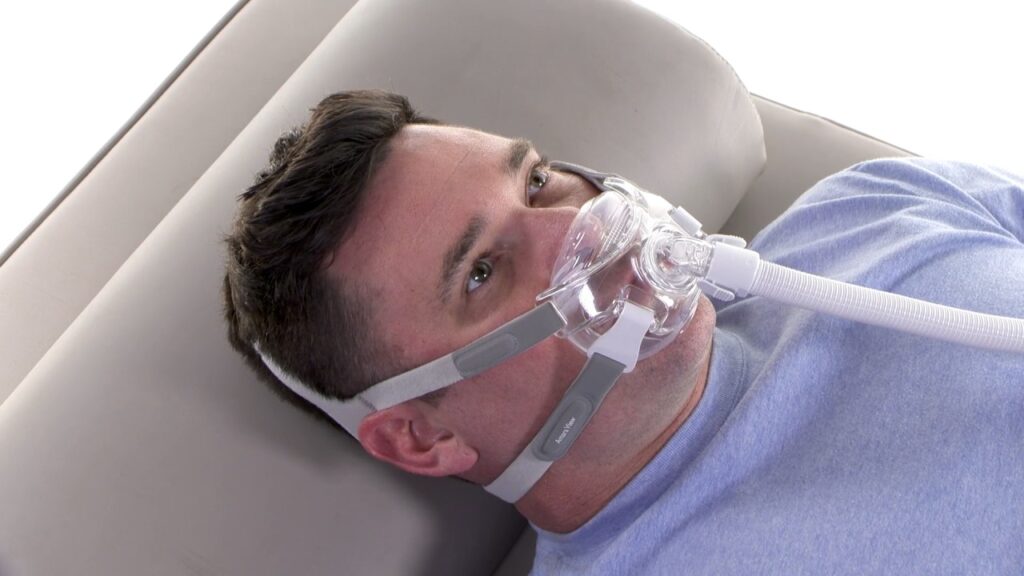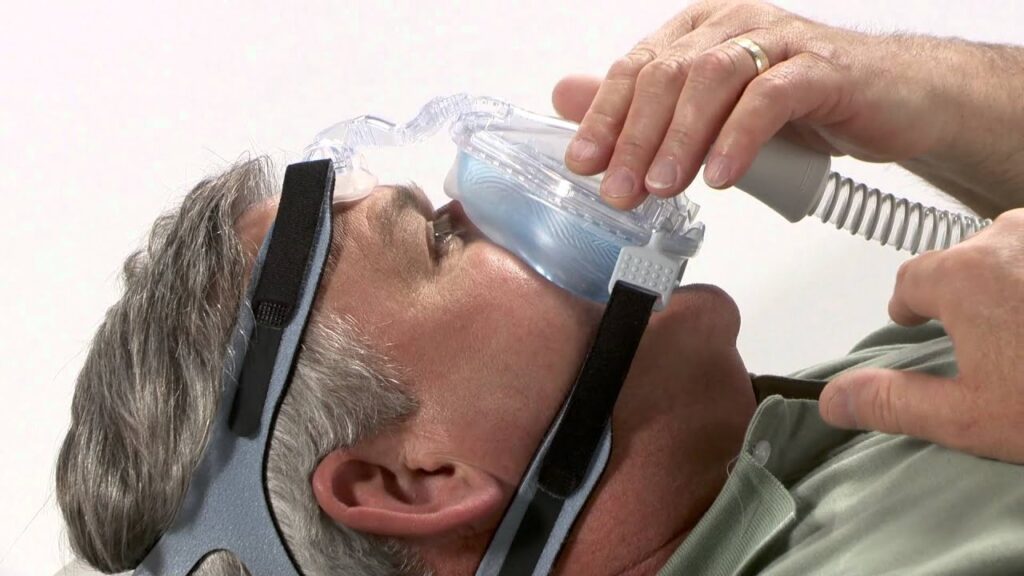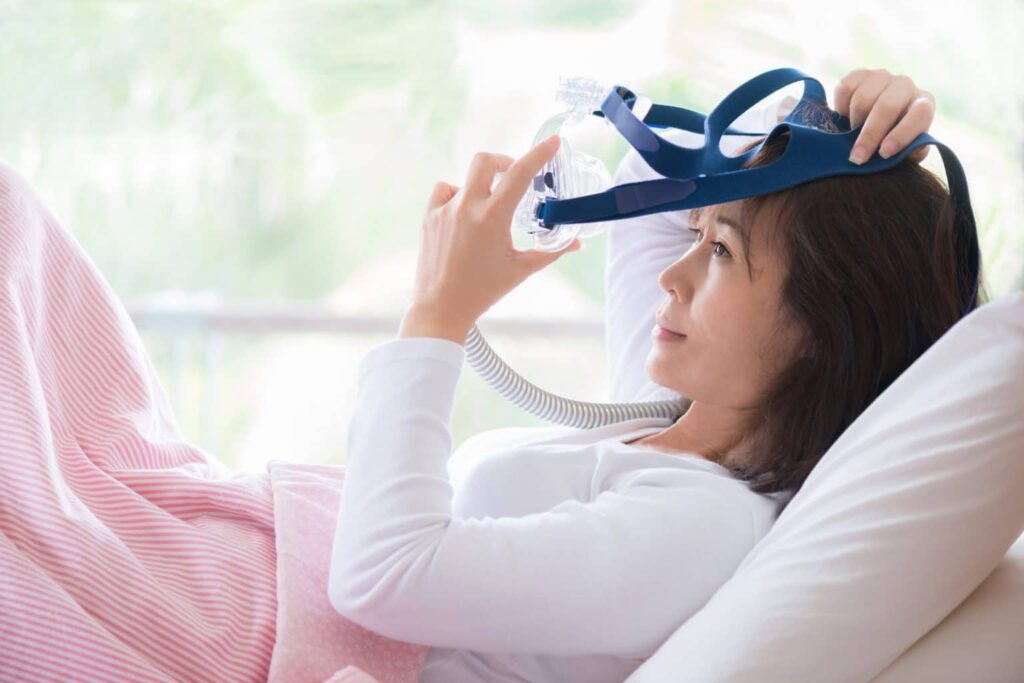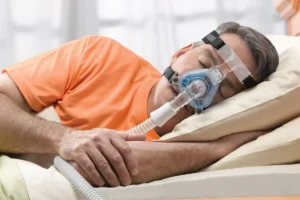If you are someone who suffers from sleep apnea, then you understand the importance of a good Continuous Positive Airway Pressure (CPAP) mask. The right mask is not just a simple piece of equipment; it can vastly improve your quality of sleep and enhance your overall wellbeing. In this article, we explore what to look for when selecting a CPAP mask that meets your specific needs.
Understanding the importance of a good CPAP mask
A CPAP mask is an essential component of sleep apnoea therapy, providing a constant stream of air that keeps the airways open during sleep. Its effectiveness largely depends on a number of factors, including the fit and comfort of the mask. Failing to invest in a quality mask can lead to a range of issues that may hinder your treatment.
The role of CPAP masks in sleep apnoea treatment
CPAP masks serve the critical role of delivering air pressure from the CPAP machine to the patient’s airway. With the correct pressure, the mask ensures that the upper airway remains open, which is vital in preventing apnoeic episodes. A poorly fitted mask can result in inadequate treatment and may even cause additional health concerns.
How a well-fitted mask improves therapy effectiveness
A well-fitted CPAP mask significantly improves the efficacy of your treatment. It ensures that the air pressure is effectively delivered while minimizing leaks. A snug yet comfortable fit will keep you from waking up during the night and allow you to experience the full benefits of your therapy, thus enhancing your quality of sleep.

Moreover, the choice of mask style can also play a pivotal role in your overall experience. There are various types of masks available, including nasal masks, full-face masks, and nasal pillows, each designed to cater to different preferences and needs. For instance, nasal masks are often preferred by those who breathe primarily through their nose, while full-face masks may be more suitable for individuals who tend to breathe through their mouth during sleep. Understanding these options can empower patients to select a mask that not only fits well but also aligns with their sleeping habits, further improving adherence to therapy.
In addition to comfort and fit, regular maintenance of the CPAP mask is crucial for ensuring its longevity and effectiveness. Cleaning the mask daily helps prevent the build-up of bacteria and allergens, which can lead to respiratory issues or skin irritations. It is also advisable to replace the mask and its components periodically, as wear and tear can affect performance. By prioritising both the selection and upkeep of your CPAP mask, you can significantly enhance your sleep quality and overall health outcomes.
Different types of CPAP masks and their features
When it comes to CPAP masks, one size does not fit all. Understanding the different types available can aid you in selecting the most appropriate mask for your needs. Each type of mask offers unique features, making it essential to understand their advantages and disadvantages.
Full face masks: Pros and cons
Full face masks cover both the nose and mouth, making them ideal for individuals who breathe through their mouths or require a higher level of pressure. They are less likely to leak around the mouth and provide a secure fit. However, some users find them bulky and uncomfortable, particularly for side sleepers. Additionally, full face masks can sometimes lead to feelings of claustrophobia, as they cover a larger portion of the face. It is also worth noting that they may require more frequent cleaning due to the larger surface area, which can be a consideration for those with busy lifestyles.
Nasal masks: Advantages and disadvantages
Nasal masks cover only the nose, offering a less obtrusive option. They generally provide a greater level of comfort and are less cumbersome than full face masks. However, they may not be suitable for those who breathe through their mouths during sleep. If mouth breathing is an issue, additional accessories like a chin strap may be necessary. Furthermore, nasal masks can sometimes cause irritation or discomfort on the bridge of the nose, especially if they are not fitted properly. Users may also find that they need to adjust the mask throughout the night to maintain a proper seal, which can disrupt sleep.

Nasal pillow masks: Benefits and drawbacks
Nasal pillow masks consist of two small pillows that fit directly into the nostrils, providing a minimalistic approach to CPAP therapy. They are lightweight and allow for maximum visibility and comfort during sleep. However, they may not be ideal for those requiring higher air pressure or for individuals who struggle with nasal congestion. Some users appreciate the freedom of movement that nasal pillow masks provide, as they are less likely to shift during sleep. Nevertheless, those with sensitive skin may experience discomfort or irritation from the direct contact of the pillows, making it essential to choose the right size and material for optimal comfort.
Factors to consider when choosing a CPAP mask
Selecting the right CPAP mask can be overwhelming, especially with so many options available. There are several key factors to consider ensuring the mask will meet your needs effectively and comfortably.
Comfort and fit: Key to successful therapy
Comfort must be a top priority when selecting a CPAP mask. If the mask is uncomfortable, you are less likely to wear it consistently. A mask should fit snugly but not so tightly that it causes discomfort. Trying on different styles and sizes can help you find the most suitable option for your face shape and sleeping habits.
Additionally, consider the type of CPAP mask that aligns with your sleeping position. For instance, side sleepers may benefit from a nasal pillow mask, which offers minimal contact with the face, while back sleepers might find a full-face mask more suitable. It’s also worth noting that the weight of the mask can affect your comfort level throughout the night; lighter masks tend to feel less intrusive, allowing for a more restful sleep experience.
Mask size and adjustment options
Many manufacturers offer multiple sizes to cater to different facial structures. Moreover, masks with adjustable straps provide additional flexibility in achieving a proper fit. It is vital to consider these aspects to ensure that you have a mask that is both effective and comfortable over long periods.
Furthermore, some masks come with features such as quick-release clips, which can make it easier to remove the mask without disturbing your setup. This is particularly beneficial for those who may need to get up during the night. It’s also advisable to check for any additional accessories that can enhance the fit, such as soft liners or cushions, which can provide extra comfort and help prevent leaks.

Material and skin sensitivity considerations
The material of the mask plays a crucial role in your overall comfort. Some individuals have sensitive skin or experience irritation from certain materials. Look for masks made from hypoallergenic materials or those that are dermatologist-tested to minimise the risk of breakouts or discomfort.
In addition to skin sensitivity, consider the breathability of the materials used in the mask. Masks designed with breathable fabrics can help reduce moisture build-up, which is particularly beneficial for those who tend to sweat during sleep. It’s also worth exploring options that feature antimicrobial properties, as these can help keep the mask cleaner and fresher for longer, ultimately contributing to a more pleasant CPAP experience.
Maintenance and care for your CPAP mask
Proper maintenance of your CPAP mask is essential for prolonging its life and ensuring hygienic practices. Regular cleaning not only enhances its performance but also protects your health.
Regular cleaning for optimal performance
Cleaning your CPAP mask should be a routine activity. It is recommended to wash the mask with warm, soapy water daily to remove any oils, bacteria, or allergens that may have accumulated. Regular cleaning promotes a comfortable and effective therapeutic experience.
When and how to replace your mask
Even the best CPAP masks have a limited lifespan. Most manufacturers recommend replacing the mask every six months to a year, depending on wear and tear. Keep an eye out for signs of deterioration such as cracks, leaks, or a decline in comfort, as these are indicators that it may be time for a new mask.
Addressing common concerns with CPAP masks
Many users experience concerns related to mask comfort and function. Addressing these issues early can significantly improve compliance and overall treatment satisfaction.
Dealing with mask discomfort and air leaks
Mask discomfort and air leaks are common concerns that can affect how well you adhere to your CPAP therapy. Experimenting with different masks and adjusting the fit can often resolve these issues. Consider using mask liners or pads, which add an extra layer of comfort and can help reduce leaks.
Overcoming claustrophobia and other mask-related issues
It’s not uncommon for users to feel claustrophobic when first using a CPAP mask. Gradual acclimatisation can be beneficial, starting with short periods of use before progressively increasing wear time. Consulting with a healthcare provider may also provide strategies to handle these feelings effectively.
In conclusion, selecting the best CPAP mask for your needs involves careful consideration of comfort, fit, and type. By understanding the various options, proper maintenance, and common concerns, you can find a mask that not only aids in your sleep apnoea treatment but also enhances your quality of life.
Related: The Ultimate Guide to Buying CPAP Machines for Maximum Comfort

